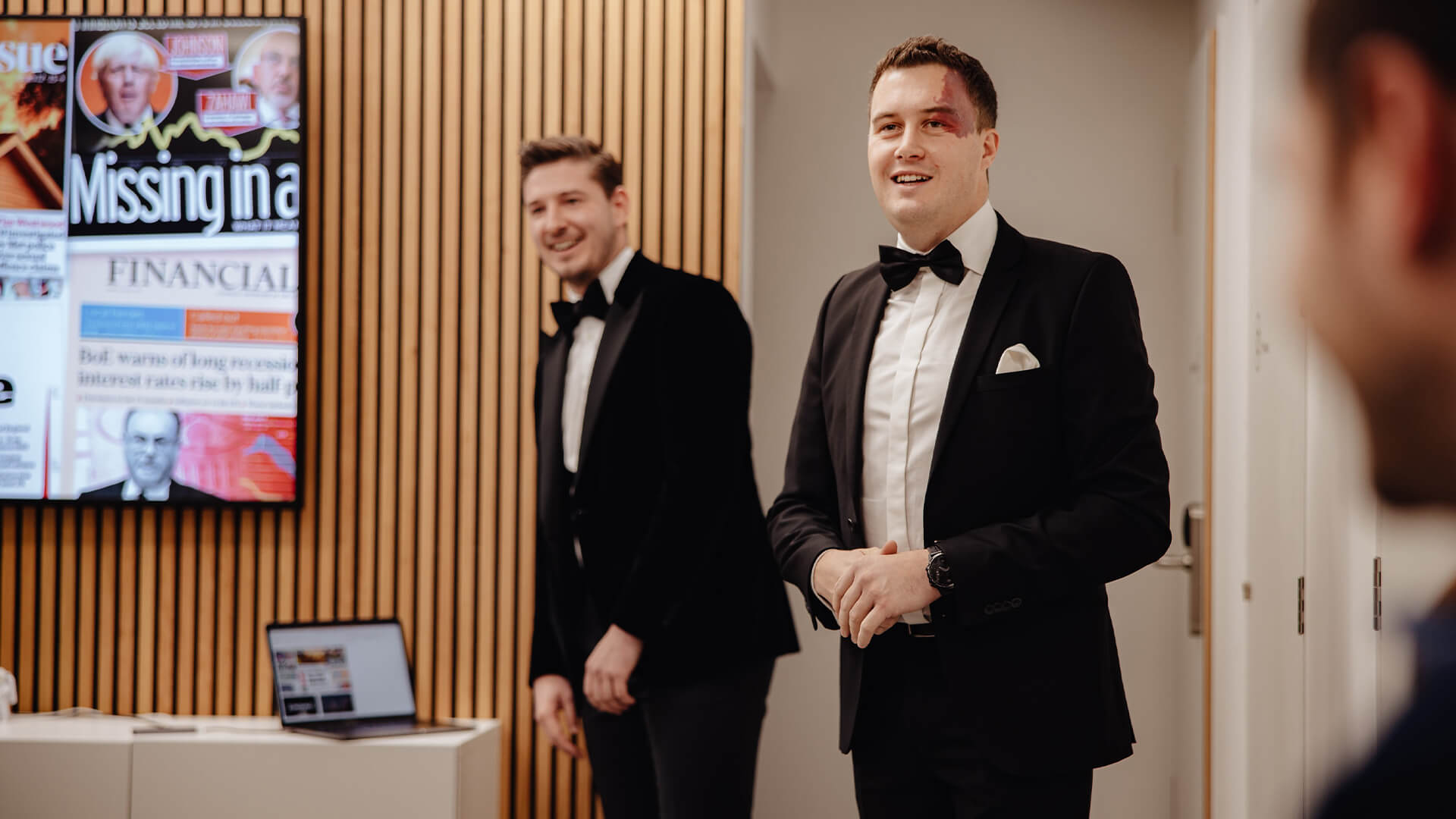Munich-based company nonplusultra’s team of experts enable success for commercial enterprises across all channels, turning clients’ visions into measurable results. The company has been awarded the title of Most Influential CEO 2023 – Germany (Retail Acceleration), in the light of which we decided to take a closer look.
The German company nonplusultra exists primarily to enable tech-brands to scale up to European retail levels. It operates within a proven framework of growth and cutting-edge technology, building the right strategy to address the vital retail touchpoints of tomorrow. Its high-flying team secure executional excellence to turn clients’ company visions into measurable, results-driven successes. Its services include market entry; strategic growth management; retail activation; business intelligence; marketplaces and eTail.
The company’s 2 founders and co-CEOs, Benjamin Gehring and Florian Hutterer, act as key team members and drivers of nonplusultra’s core values. These are services it bears in mind when recruiting new team members, and hiring/firing staff. It lives by the following values, kicking off with taking the lead – as it is a proactive company that owns its business. It also believes that data builds opinion – by which it means its arguments are based on observations, not assumptions. The third value is go where the pain is – by which it means it actively faces challenges in order to keep growing. Next up is the assertion that trust forms loyalty – as it believes acting with care helps to build long-lasting partnerships. The final value is to spread good vibes – because the company thinks it is important that each individual does not take him / herself too seriously.
Benjamin explained to us that aside from an internship, he has never worked for a company other than nonplusultra. This means that he has very much relied on creating his own leadership style, often by observing and acting on the best practices of customers, suppliers, business partners and well-known authors. In Benjamin’s opinion, there are infinite ways to adapt and learn leadership skills. For instance, the company was requiring of very different leadership when there were only 3 people, as opposed to 15. Currently nonplusultra has over 50 persons working, but Benjamin is under no illusions that his leadership style might have to change on the way to growing to 100 people.
Benjamin and Florian recently wrote down their personal leadership principles so that they might share this useful information with senior management. The points they wanted to impart were as follows: leaders eat last; a juncture inspired by British-born American author Simon Sinek. It means that it is essential to listen to everyone in the room and let them fully share their opinions without jumping in. It is better not to jump ahead, but to speak last. The second point Benjamin and Florian emphasize is to deliver immediate feedback. This was inspired by another best-selling author, Kim Scott, and follows her counsel not to wait until the next quarterly review, or yearly feedback meeting to give either positive or negative feedback. Do it straight away.
The next guidance Benjamin and Florian felt it was important to impart was to walk the talk. By this they mean be the change you want to see. This time, they were influenced by entrepreneur and CEO Frank Slootman, and clarify by explaining that if you want your team to perform, you need to show how performance is done. This does not mean that you need to be the best salesperson in the sales team, but you need to show how it is done, create the right strategies and ensure that everyone is in the right position and enabled to be their best. It is the same with football coaches, the best football coaches have not always been the best football players themselves, but they can walk the talk.
“We want our leaders to be coaches, not problem solvers.”
A further important goal for nonplusultra is to become THE one-stop-shop for tech-brands to unlock European omnichannel retail. It offers services such as market entry, business development, outsourced key account management, e Tail management, channel marketing, field sales and marketing, merchandising, promotion, retail analytics and retail as a service. And the unique part of this service portfolio is that there is currently no one in Europe who offers everything under one roof. This is the aim for nonplusultra. Clients mostly arrive at nonplusultra through word of mouth, or perhaps via trade shows like CES (Consumer Electronic Show) in Las Vegas, or IFA (Internationale Funkausstellung) in Berlin. As the most data driven company in the consumer electronics fields, it tracks every single sale from retailers, as well as stock, sales out allowances, trainings as well as marketing and POS spendings. This enables it to analyse the ROI (return on investment) for its customers on macro level, on country level, or even down to micro level at the stores.
As a retail growth agency specialising in omni-channel solutions, and focused on consumer electronic retail, nonplusultra has identified and continues to anticipate several industry-based challenges. By investing strategically in the sector, it aims to address these challenges and ensure efficient and sustainable scaling for consumer electronic brands in Europe. Some of the specific challenges it is currently facing, and expects to encounter in the near future, include the following: increasing competition; as the retail and eTail landscape is a highly competitive world, with numerous players vying for market share, nonplusultra continuously monitors and analyses the competitive landscape to identify emerging trends, and stay ahead of the competition. Shifting consumer behaviour; as consumer preferences and behaviours evolve rapidly, driven by advancements in technology and changes in shopping habits. The company needs to adapt and anticipate such shifts to be able to provide personalised and seamless experiences across various channels. Digital transformation; as the retail industry is undergoing a significant digital transformation, with online sales and e-commerce platforms playing an increasingly important role, nonplusultra needs to stay up to date with the latest digital technologies, optimise online presence, and leverage data-driven insights to drive growth for consumer electronic brands.
In addition, the supply chain and logistics requires efficiency, and especially broadline distribution management. This is critical in the retail industry when dealing with consumer electronics, and nonplusultra strives to optimise the logistics and distribution processes to ensure timely and cost-effective delivery of products across Europe. Finally, there is the challenge of regulatory compliance; with retail operations being subject to various regulations and compliance requirements, it needs to stay up to date with evolving rules such as data protection and consumer rights. It is essential to mitigate legal risks for nonplusultra to maintain trust with its clients and their customers. By addressing all these challenges, the company aims to position itself as a leading retail growth agency in Europe, helping consumer electronic brands navigate the complexities of the industry and achieve long-term, efficient scaling through its omni-channel approach.
The future is bright for award winning nonplusultra, who have recently been acquired by international brand experience agency Avantgarde Group. This brings immense benefits to the company, enabling it to expand into new markets outside Europe. It is also a strategic collaboration, showing just how far Benjamin Gehring and Florian Hutterer have gone in building a company that not only creates value for international consumer electronic brands, but also generates a healthy revenue, and attracts the attention of a well-known marketing group. It’s onwards and upwards now for this terrific company.
For business enquiries, contact Benjamin Gehring from nonplusultra Sales GmbH via their website – www.nonplusultra.eu















